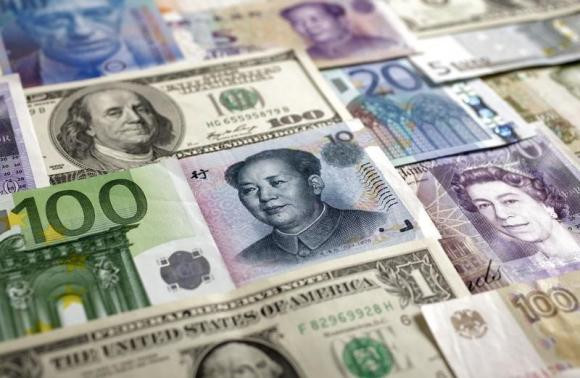Central banks watch: FOMC, BoE, RBA minutes to be in focus while Japan, Indonesia and South Korea to set rates

The central bank events in focus next week will be the minutes release by the FOMC, Bank of England and the Reserve Bank of Australia more than the rate decisions by Japan, South Korea, Indonesia, South Africa, Columbia, Namibia and Ghana.
A non-monetary policy ECB meeting will also be an important event.
Speeches by Swiss National Bank Chairman Thomas Jordan, Philadelphia Fed President Charles Plosser and Bank of Canada's Agathe Cote are the other important items in the central bank calendar for the 16-20 February week.
Cues from the Federal Reserve as to how it sees the latest set of mixed data from the US would be quite important. The US inflation rate has surprised on the downside while the labour market data was better than expected in terms of non-farm jobs addition.
The Australian central bank's meeting minutes to be published on 17 February will be significant this time as the 3 February meeting had seen a surprise 25 basis points cut in the official rate to a record low of 2.25%.
The BoE minutes will be watched for any additional dovish surprise after the last one shifting two members from the raise camp to the hold camp, making the hold decision in January a unanimous one after five straight months of a 7-2 vote.
The BoE and FOMC minutes are scheduled for 18 February when the European Central Bank will also meet to discuss topics other than monetary policy.
The Bank of Korea has been on a rate easing cycle and with the inflation rate staying below 1% for the past two releases, the chances are for further easing. After the 50 basis points cut in 2014, the base rate is at 2%. The decision is due on 17 February.
South Africa, on the other hand, has been on a tightening cycle, but the current disinflation trend has increased the likelihood of normalisation in the repo rate.
The South African Reserve Bank had raised the rate 75 basis points last year taking it to 5.75% while inflation has fallen to a more than one-year low of 5.3% as per December data.
Indonesia too effected a rate increase in 2014; the 25 basis points move has taken the discount rate to more than a five-year high of 7.75% and inflation has just fallen from a medium-term high of 8.36% to 6.96%, easing the upward pressure on rates.
Both South Africa and Indonesia will decide rates on 17 February in addition to South Korea.
Ghana has been on a tightening cycle since 2012 and including the 500 basis points raise in 2014, the Monetary Policy Committee of the Bank of Ghana has increased the policy rate from less than 13% to 21% by last year. The last raise was in November and this month's is due on Wednesday.
With big margin rate raises, inflation in Ghana has been increasing since 2012. The annual rate accelerated to a five-year high of 17% by November but has started showing signs of easing. It was steady in December but slipped to 16.4% in January, slightly easing the upward pressure on the monetary authority.
Namibia too had raised the main repo rate last year, and with the 50 basis points move, it is now at 6%. The last raise was in August. The country has seen inflation easing steadily since the May peak of 6.05% and hitting more than a one-year low of 4.44% by January.
The Columbian central bank has been keeping the main intervention rate steady for the past several months but had raised it 125 basis points last year taking it to 4.5%. With inflation rising and now at a multi-year high of 3.8%, the Central Bank of Columbia should be against further increases.
Bank of Japan
The biggest central bank on the rate decision calendar in the coming week is the Bank of Japan from where the market does not expect any change in the official discount rate which has been at 0% since late 2010.
Market participants will rather look at the tone of the statement and the likelihood of additional unconventional policy instruments like quantitative easing in order to shore up growth and inflation in the world's fourth largest economy. The BoJ decision is scheduled for 18 February.
Among speakers, the SNB's Jordan will attract more eyes as he is likely to throw more light on the bank's recent decision to scrap the EUR/CHF floor and expanding stimulus. He is scheduled to speak on 17 February.
© Copyright IBTimes 2025. All rights reserved.





















